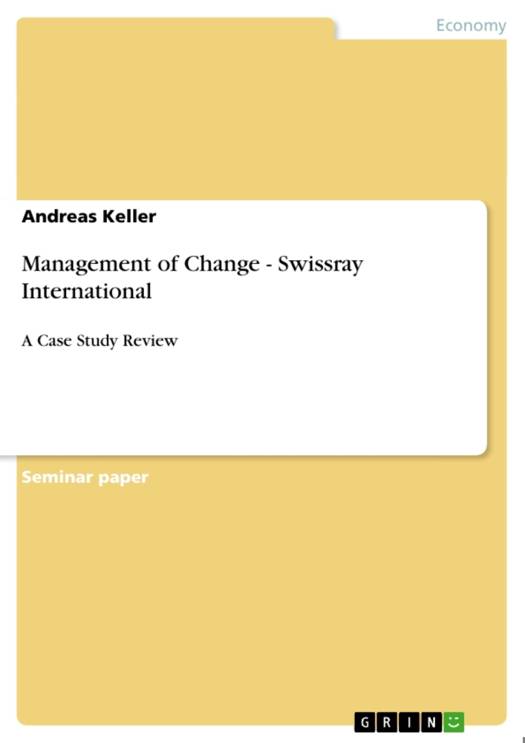
- Afhalen na 1 uur in een winkel met voorraad
- Gratis thuislevering in België vanaf € 30
- Ruim aanbod met 7 miljoen producten
- Afhalen na 1 uur in een winkel met voorraad
- Gratis thuislevering in België vanaf € 30
- Ruim aanbod met 7 miljoen producten
Zoeken
€ 60,95
+ 121 punten
Omschrijving
Seminar paper from the year 2004 in the subject Economics - Job market economics, grade: 1.6, University of Strathclyde, language: English, abstract: The literature1 describes the process of change management as tools and techniques to manage individuals and the related HR issues effectively, when implementing organisational change or to remake the companies into better competitors (Kotteri,1998, p.1). One example that springs to mind is the reference to Weiss (2001, p.27), referring to the three perspectives on change. My personnel experience has shown there is no organization, small or large, global or local, that is immune to change. In order to manage demographic and competitive forces with the latest technological, every organization across the board, in all market segments, is attempting to fundamentally alter the way they do business. According to a study conducted by Weiss (2001, pp23-29ii), only a small percentage of these efforts actually result in realizing their aims. Transformational change strategies often fall short of their goal - as this case study confirms too - because the organisation itself does not change the way it behaves. Yet change remains acknowledged as a key factor in management, as has been underlined by Executive Online Group research2 (2002) revealing that among 100 UK companies employing >=500 people, 35% of the work of all directors is devoted to change, with a total of 79% major initiatives recorded as M&A's, down-sizing and corporate restructures. The study further assumes that the time spent on these tasks is likely to increase over the years.
Specificaties
Betrokkenen
- Auteur(s):
- Uitgeverij:
Inhoud
- Aantal bladzijden:
- 20
- Taal:
- Engels
Eigenschappen
- Productcode (EAN):
- 9783656005087
- Verschijningsdatum:
- 14/09/2011
- Uitvoering:
- Paperback
- Formaat:
- Trade paperback (VS)
- Afmetingen:
- 148 mm x 210 mm
- Gewicht:
- 40 g

Alleen bij Standaard Boekhandel
+ 121 punten op je klantenkaart van Standaard Boekhandel
Beoordelingen
We publiceren alleen reviews die voldoen aan de voorwaarden voor reviews. Bekijk onze voorwaarden voor reviews.











